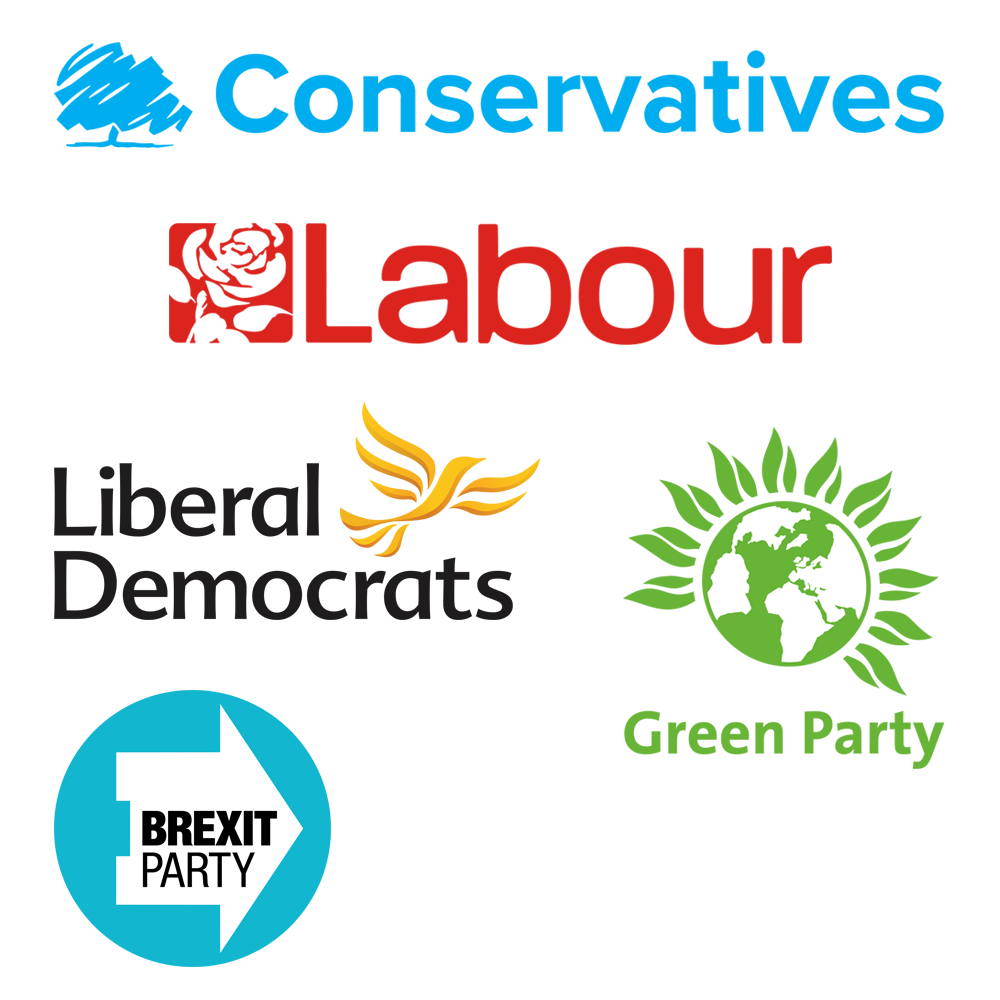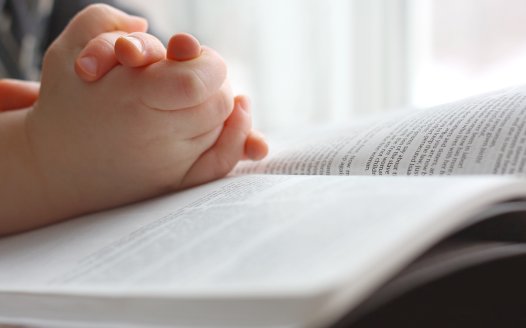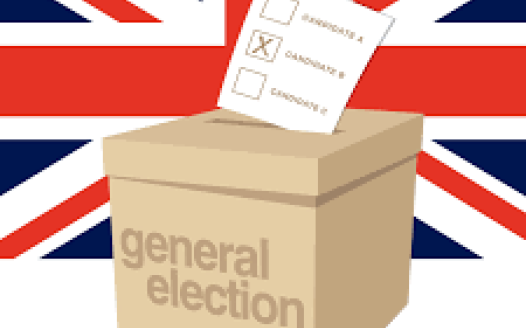Election 2019: Where do the major parties stand on secularist issues?
Posted: Thu, 28th Nov 2019 by Megan Manson
Megan Manson studies the election manifestos for the main UK-wide parties – and says religion will continue to be a dividing force in UK politics during the next parliament.
Earlier this month the National Secular Society launched a 'secularist manifesto' of 11 policy proposals we want to see parties adopt for their 2019 election campaigns. Since then, most of the major parties have released their manifestos. But how far do they support secularist principles?
We've taken a look at the manifestos for four national parties – the Conservative Party, Labour Party, Liberal Democrats and the Green Party – to see where they stand on various secularist issues.
The Brexit Party doesn't call its slim collection of pledges a manifesto because, it says, "the old mainstream parties have made 'manifesto' a dirty word". We examined it nevertheless. We also looked at Labour's 'race and faith manifesto'.
We plan to take a look at some of the more regionally-focused parties, such as the Scottish National Party and Plaid Cymru, separately.
Religion and schools
The first three pledges of the NSS 2019 secularist manifesto are education-focused: No more faith schools, end religious discrimination in school admissions, and abolish the collective worship requirement.
Sadly, none of the parties have pledged to end this disproportionate influence of religion in our schools.
However, the Greens would bring all academies and free schools under "democratically elected local authorities". Whether this would mean ending the role of unelected religious institutions is unclear.
Labour hints at an end to academisation too. The responsibility of education would "sit with local authorities" who would manage admissions and open new schools. Labour also wants all schools to be "subject to a common rulebook, set out in legislation." Again, it's uncertain where this would leave faith schools and faith-based discrimination in admissions. But judging by shadow education secretary Angela Rayner's recent tweet that she'll "never put our faith schools at risk", it seems unlikely faith schools will be rolled back under Labour.
Labour's race and faith manifesto pledges to support "religious education about all faiths in all schools". The pledge notably doesn't mention education about nonreligious beliefs.
The Liberal Democrats want to phase out grammar schools because they add "division to the system", but sadly do not say the same about faith schools. However, the manifesto does suggest a retreat from academies and the re-introduction of community schools. So while the Lib Dems have not said they will phase out faith schools, they don't explicitly include faith schools in their plans for education either. It's a pity that their long-standing commitment to ending collective worship and discriminatory school admissions wasn't mentioned at all.
The Brexit Party wants to "further expand parental choice" by increasing academies and free schools – which would be likely to mean more faith schools.
Reforming the House of Lords
Removing the 26 unelected bishops in the House of Lords is one of our major campaign goals.
All parties we examined – except one – pledged changes to the House of Lords that could entail the abolition of the bishops' bench. The Lib Dems and Greens would create an elected House of Lords. Labour and the Brexit Party would abolish the House of Lords altogether, with Labour replacing it with a "Senate of the Nations and Regions".
The one exception is the Conservative Party, which seemingly has no plans to reform the House of Lords.
Inclusive relationships & sex education
The provision of mandatory, LGBT+ inclusive relationships & sex education (RSE) has been one of the big talking points in education this year. Both Labour and the Lib Dems support mandatory LGBT+ inclusive RSE, although they do not specifically say if parents will retain the right to withdraw children from sex education, or if faith schools will still be allowed to teach RSE "within the tenets of their faith".
The Greens have gone a little further, saying they will "end the opt-out of LGBTIQA+ inclusive PHSE classes", which presumably means they would end the parental right of withdrawal.
Freedom of expression
Promoting free speech as a positive value is another NSS policy proposal. The Conservative manifesto appears particularly strong on this. It says the Tories will "champion freedom of expression and tolerance, both in the UK and overseas". It also emphasises freedom of expression online, in the press and in universities.
The Brexit Party also pledges to protect free speech at universities, while Labour supports a "free and fair press". The Lib Dems would also protect whistleblowers and reporters on human rights abuses.
The Green Party says it will "protect the right to peacefully protest", but other aspects of their manifesto could potentially chill free speech – particularly proposals to establish new regulatory regimes for both the press and online media.
Labour's race and faith manifesto highlights its adoption of the All Party Parliamentary Group on British Muslims' definition of Islamophobia, which has the potential to inhibit free speech about matters of fundamental importance. The Lib Dems have also adopted the Islamophobia definition.
The race and faith manifesto also says Labour will "ensure the views of communities with or without faith are respected and protected across our society". While it is refreshing to see those "without faith" getting a mention, this phrasing could chill free speech. People should be respected and protected, but not "views". Views should always be open to criticism or ridicule.
Equality & human rights
The Liberal Democrats' manifesto places a particular focus on this area. It says "human rights are global" and that championing the Human Rights Act and the European Convention on Human Rights will be "priorities". Most welcome of all, the Lib Dems would outlaw caste discrimination. This is one of the policy proposals in the NSS's secularist manifesto.
The Lib Dems place particular emphasis on defending LGBT+ rights and equality, which are referenced throughout the manifesto. This would include developing a strategy for promoting the global decriminalisation of homosexuality, and improving support for LGBT+ asylum seekers fleeing persecution because of their sexual orientation.
The Labour manifesto also emphasises LGBT+ rights. It pledges to "eliminate remaining areas of discrimination in law," which is encouraging if it includes exemptions in the Equality Act 2010 that allow religious organisations to discriminate against LGBT+ people. Labour would appoint a dedicated global ambassador to the Foreign Office on LGBT+ issues.
The party would also create a "Department for Women and Equalities" to ensure all policies and laws are "equality-impact assessed". Its policies on human rights have an international focus, and would include appointing human rights advisers to work across the Foreign Office.
The Conservatives say they want people's rights to be respected and for all to be "treated with fairness and dignity". They will "reject the politics of division".
However, they will also "update the Human Rights Act" to ensure there is a "proper balance" between "the rights of individuals", "national security" and "effective government". This could be concerning if religious groups try to exploit an erosion of protections for human rights.
Although they place less emphasis on LGBT+ equality than Labour or the Lib Dems, the Tories will "combat harassment and violence" against LGBT people and will host the UK government's "first ever international LGBT conference".
Like the Lib Dems, the Greens will "retain the Human Rights Act" and "reaffirm the UK's commitment to the European Convention on Human Rights".
Freedom of religion or belief
The fundamental human right to freedom of religion or belief includes the nonreligious. Sadly, this has been largely ignored by most parties, despite the continued oppression and persecution of nonreligious people.
The Tories say they will "protect people from physical attack or harassment" for their "religion" and will "combat harassment and violence against all religious groups". They also "seek to protect those persecuted for their faith". In all of these statements, commitments to the rights of the nonreligious are conspicuously absent.
In its race and faith manifesto, Labour makes repeated pledges of support for the rights of religion and faith groups with very little attention given to the rights of the nonreligious. It says people should have the opportunity and means to fulfill their potential whatever "your faith or religious belief". Why the inclusion of the word "religious" before "belief"?
Both Labour and the Greens pledge to defend the right to wear religious clothing and other faith symbols. Parties that say this shouldn't ignore the fact that some "religious clothing" is imposed upon the wearer to comply with misogynistic 'modesty codes'. They should remember it may not be appropriate to wear particular items of religious garb at all times (such as an Islamic face veil in a courtroom, or a Sikh kirpan sword in a place where high security is necessary).
The Lib Dems pay a little more attention to those of no religion. They pledge to "protect, defend and promote human rights for all", including "those persecuted for their religion or belief". They also say they will "appoint an Ambassador-level Champion for Freedom of Belief", which again seems reassuringly inclusive of the nonreligious.
All parties have pledged to protect places of worship from hate-motivated attacks, apart from the Brexit Party.
Reproductive rights
The right to safe and legal contraception and abortion services is still subject to attack by religious institutions.
The Lib Dems have the most to say about reproductive rights. They believe "everyone has the right to make independent decisions over their reproductive health without interference by the state" and that access to reproductive healthcare "is a human right". They will decriminalise abortion across the UK, retain the existing 24-week limit and legislate for access to abortion facilities within Northern Ireland.
They would fund abortion clinics to provide their services free of charge to "service users regardless of nationality or residency". Finally, they would make "intimidation or harassment of abortion service users and staff" near or outside clinics "illegal".
Labour would also decriminalise abortion and say women in NI "should have access to abortions in Northern Ireland".
The Green Party would extend the EU's Charter of Fundamental Rights to give women in all EU countries "access to legal, safe and affordable abortion services."
Genital cutting & forced marriage
Female genital mutilation (FGM) and forced marriage are two forms of violence against women and girls (VAWG) that are partially motivated by religious teachings.
All parties with the exception of the Brexit Party make commitments to tackling all forms of VAWG. Labour and the Greens say they will make misogyny a 'hate crime'.
The Tories, Lib Dems and Greens make direct reference to tackling FGM. The Tories are the only party who refer specifically to ending forced marriage.
None of the parties made any indication that they would examine the harms caused by male genital cutting, i.e. non-therapeutic infant male circumcision.
Marriage reform
The NSS campaigns for separation of religion and state in marriage law, and to ensure equality and fairness in marriage.
The Lib Dem manifesto is the only one that mentions reforms to marriage law in England and Wales. Strikingly, the Lib Dems would enable the Church of England and Church in Wales to conduct same-sex marriages, presumably by removing the common law legal duty on Anglican clergy preventing them from marrying same-sex couples. They would also extend "limited legal rights" to cohabiting couples, which may help protect the many Muslim women in Islamic nikah relationships that are not legally recognised.
The Lib Dems would also introduce "legal recognition of humanist marriages". While some Humanists may celebrate this, legalising Humanist marriages would not tackle the problem that marriage law is overly complicated and unequal depending on what religion or belief you have. It may even exacerbate the problem by adding yet another set of laws for a specific religion or belief group, rather than ensuring everyone regardless of religion or belief marries under the same laws.
Non-stun slaughter
Although all the parties make pledges to protect animal welfare, none have indicated they will end the religious exemptions to animal welfare law requiring all animals to be stunned before slaughter.
Labour is particularly disappointing. It says it will protect "production of kosher and halal meat". No kosher authorities in the UK accept meat from stunned animals as kosher, which means Labour will support the religious exemptions to non-stun slaughter.
The Greens, who are usually very concerned by animal welfare, pledge to defend the right of religious people to "express their faith" through food. This hints that they too condone non-stun religious slaughter, even though it entails a high degree of unnecessary animal cruelty. This prioritisation of religious demands over animal welfare comes a year after a Green councillor voted to continue supplying non-stun halal meat to local schools.
However, the Greens also say they would introduce mandatory labelling for meat showing method of production. This should mean any meat slaughtered without stunning would at least be labelled as such.
Secular public services
There has been a recent drive to contract out the provision of public services, resulting in many more religious organisations seeking to become service providers. Both Labour and the Greens would increase funding to local public services, with Labour ending the current presumption in favour of outsourcing public services to "introduce a presumption in favour of insourcing". Where services are provided by the private sector, Labour would also ensure they have "effective equalities policies" in place. A preference for insourcing and measures to guarantee equality would both help to counter any potential negative consequences of outsourcing to religious groups.
One potentially problematic pledge in the race and faith manifesto is to "improve coroners services to ensure they meet the needs of faith communities", including "'out of hours' services" and "minimally invasive autopsies to ensure quick burials when required by faith communities". Such a bespoke service to meet religious demands would undermine the principle that public service provision should be secular and fair and treat everyone equally. This pledge is doubtlessly a response to the case of coroner Mary Hassell, who was forced to change her 'first come, first served' approach to her job after a sustained campaign from Jewish groups in particular.
Counter-extremism
Both religious and far-right extremists pose a serious threat to secular democracy. The Conservatives make several pledges to combat extremism, including ensuring that those who work in counter-extremism are "protected from threats and intimidation". This would be good news for prominent figures like Sara Khan, the lead commissioner for counter-extremism who has faced "abuse and threats from Islamist, far right and hard left extremists."
The Tories also say they will "ensure that extremists never receive public money," although they do not say how. The NSS has proposed removing "the advancement of religion" as a charitable purpose as a good place to start. Religious extremists can easily register as a charity under "the advancement of religion" and gain all the tax breaks and gift aid that charitable status confers. No party has pledged to change this.
The Lib Dems would "work with international partners to tackle violent extremism" and pay special attention to UK citizens who have joined overseas terrorist organisations and may be significant sources of terrorist activity "if they return to Britain".
Labour calls the Tories' current measures against radicalisation a "failure". It says it will review the Prevent programme and consider "alternatives". It would also commission an independent review into far-right extremism.
The Greens would replace Prevent with "community cohesive policing" which "engages rather than antagonises" minority ethnic communities.
Holding the parties to account
In summary, no party shows a consistent commitment to secularism as a principle. While disappointing, this is not surprising given the current climate of division and identity politics. The general lack of willingness to confront religious groups in these manifestos is a reminder that it will be important to hold the parties to account for any backsliding in the face of religious pressure during the next parliament. And it's also a reminder of the need to promote secularism as a unifying force that upholds equality, freedom and fundamental human rights for all, regardless of religion or belief.

What the NSS stands for
The Secular Charter outlines 10 principles that guide us as we campaign for a secular democracy which safeguards all citizens' rights to freedom of and from religion.











